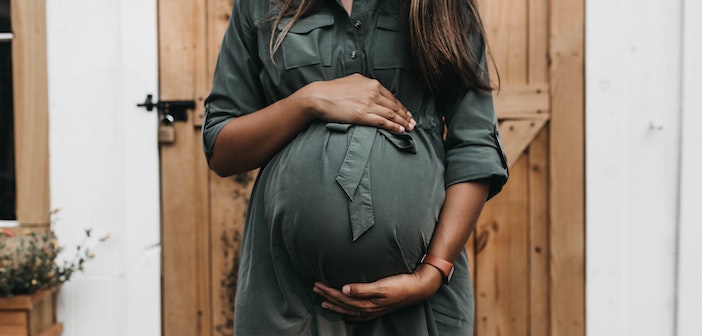If you’re pregnant and working in China, don’t ever just assume that you’re subject to the same rights as back in your own country, regardless of whether you work for a local Chinese company or an international one. For most of us when we start a new job and HR hands over a copy of the company policy handbook, we just sign it without giving it a second thought. But recently, my HR Director gave me the whole run-down on pre- and postnatal rights in China, and to my surprise, there were quite a few terms and rules that I’ve never even heard of, but am definitely glad she brought them to my attention.
China has pretty strict regulations for employers when it comes to the health and benefits of pregnant employees. Women – both foreign and local – are protected under Order No. 619 of the State Council of the People’s Republic of China, known as the “Special Provision on Labor Protection for Female Employee”. These are a set of regulations adopted at the 200th executive meeting of the State Council back in 2012.
This set of regulations help ensure that expecting mothers receive adequate care and support from their companies, both before and after the birth of their new baby. But first things first, before you start planning your maternity leave and mentally designing your nursery, you need to provide your HR department with a medical report from your initial checkup that proves you’re indeed pregnant.
Maternity Leave:
One of the first things that my HR and I discussed when I informed the company of my pregnancy was my maternity leave. In China, female employees are entitled to 98 days of paid maternity leave for the moms with one bun in the oven. For those pregnant with twins or more, each baby gets mom an additional 15 days of maternity leave. And for the moms working in Beijing, you get an additional 30 days of maternity leave. Just to be clear, these maternity days include weekends and public holidays but they’re completely different from your annual leave days and it’s absoutely illegal for HR to try to tell you that you can’t take annual leave because you’ve already taken your maternity leave.
In the case of a miscarriage, the company is also obligated to provide paid leave. If the miscarriage took place within the first four months of the pregnancy, you’re entitled to 15 days of paid leave. If it took place after four months you’ll be entitled 42 days of paid leave.
Working Hours and Breastfeeding Leave:
To protect the physical and mental health of mom and baby, scheduling night shifts and extending working hours for women seven months pregnant and above is strictly prohibited in China. It is also illegal for a company to deny requests by expectant mothers needing to schedule prenatal visits during working hours. If your work includes tasks that are deemed unsuitable for pregnant women, your company will be responsible for reducing the amount of labor or arranging other suitable tasks for you. Don’t ever assume that you don’t have a choice because China takes the health and safety of babies very seriously.
Even after your new bundle of joy is born, your employer will not be allowed to request overtime or arrange night shifts for you before your baby turns one year old.
I’d never heard of breastfeeding leave until very recently. After your baby is born (and you’ve returned to work) your employer needs to allocate one hour of your workday for breastfeeding time before your baby turns a year old. For moms with multiple babies, your employer will need to arrange an additional hour for each baby. Despite the name, this doesn’t mean you need to have someone bring your baby to the workplace or run home to breastfeed. It simply means that you get an hour out of your workday to pump. And if you’re working in an environment where there’s a large number of female employees, it’s the employer’s duty to arrange for a safe, clean environment for moms to pump in peace.
This is also where a second look at your employee handbook might come in handy. Although the official government regulation is to require that the employer gives new moms an hour out of their workday to pump, many companies offer new moms the option to either arrive an hour later or leave an hour early to breastfeed at home.
Salary:
Let’s cut to the chase. It’s illegal for an employer to fire you due to pregnancy. It’s illegal for them to lower your wage, lay off, or terminate employment contracts due to pregnancy, childbirth, or breastfeeding. It’s also illegal for your employer to deny you pay or suggest that you work while you’re on your maternity leave.
Reimbursements:
Having a baby isn’t cheap and if you’re planning on doing your prenatal check-ups and delivery at a public hospital, your medical expenses will be reimbursed if your company has purchased social insurance for you. The medical fees covered include costs you will have spent for mandatory prenatal checkups, delivery, and abortions. If you’re choosing to do your check-ups and delivery at a private hospital, then you’re on your own for medical expenses.
KEEP READING: What You Should Know About Your Legal Rights Before Your Maternity Leave
Photos: Unsplash




